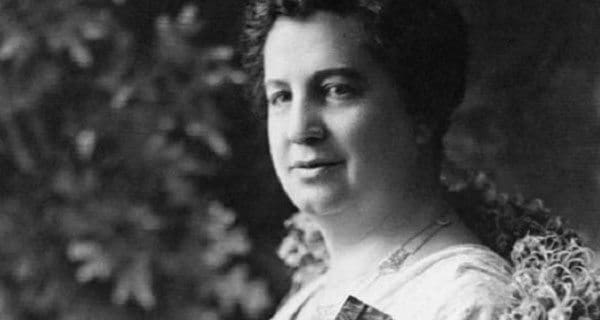 Decades ago, I remember my father complaining about “the new fashion for debunking.” But imbued with the certainty of a university freshman, I wasn’t particularly sympathetic.
Decades ago, I remember my father complaining about “the new fashion for debunking.” But imbued with the certainty of a university freshman, I wasn’t particularly sympathetic.
In retrospect, though, he had a point.
I was reminded of this the other day when I came across my research notes for a decade-old historical journal essay on Emily Murphy. Once upon a time, she was something of a feminist icon. Now not so much.
Murphy was born into an Irish Protestant family in Cookstown, Ont., in 1868. Although her father and maternal grandfather were immigrants, the family was financially secure and politically connected. To quote biographer Christine Mander, it was a childhood marked by “affluence, accomplishment, affection and high ideals.”
Murphy’s first brush with the spotlight came as a writer using the pseudonym Janey Canuck (a female version of Johnny Canuck, the cartoon character then popularly seen as the personification of Canada). Published in 1901, The Impressions of Janey Canuck Abroad was a hit. Other books and magazine articles followed.
Then, after moving to Edmonton in 1907, Murphy morphed into a socio-political activist with a heavy emphasis on women’s rights. Her first target had to do with property.
Under Alberta law, a husband could sell his land and keep the proceeds – in effect, leaving his wife and children penniless. Apparently inspired by a real case, Murphy led a campaign to change that law. And in 1911, the Alberta legislature passed the Dower Act, establishing a woman’s legal right to one-third of her husband’s property.
She was also involved in the campaign for women’s suffrage. While Canadian women had the vote in some late 19th century municipal circumstances, the provincial and federal franchises didn’t start becoming available until the second decade of the 20th century. Alberta was in the first wave, providing the right to vote in provincial elections to women in 1916.
And there was another breakthrough that year.
After being approached by two women who had been asked to leave a courtroom during a prostitution trial, Murphy got involved. Her argument was straightforward: “If the evidence is not fit to be heard in mixed company, then you must lobby the government to set up a special court presided over by women, to try other women.” The Alberta attorney general went along, appointing her as the first female magistrate in the British Empire.
However, Murphy’s most famous accomplishment was still to come. As chief protagonist in the Persons Case, which has been described as “among the most significant in Canadian constitutional history,” she played a key role in determining that women were legal “persons” under the terms of Section 24 of the British North America (BNA) Act.
The catalyst for the case was whether a woman could be appointed to the Senate, something that appealed to Murphy from the perspectives of both principle and personal ambition. But the answer to her campaign was always No, on the grounds that the BNA Act’s definition of a person precluded the appointment of a woman.
Murphy, however, was nothing if not persistent. And she had a very useful ally in her brother William Ferguson, a justice of appeal on the Supreme Court of Ontario.
Beginning in 1921, various legal strategies were crafted and argued before the Canadian courts, culminating in an unfavourable 1928 Supreme Court ruling. The story wasn’t quite over, though.
Until 1949, there was a recourse beyond the Canadian Supreme Court – specifically, the Judicial Committee of the Privy Council (JCPC) in London – and that was where things ended up.
Finally, on Oct. 18, 1929, women were declared to be persons under Section 24 and thus eligible to sit in the Senate. The JCPC had spoken and Murphy had won her case, although she never got the Senate seat she coveted.
Today, Murphy’s reputation is ambiguous.
Politely, she’s characterized as controversial.
Less diplomatically, she’s condemned as racist, an accusation mostly derived from her 1922 book The Black Candle and its focus on the drug trafficking role of non-white immigrants, particularly Chinese.
As argued in a column in October 2011, I think this indictment is stripped of historical context and thereby mostly foolish. To borrow a phrase, “we’re all bigots by tomorrow’s standards.”
So let’s cut Emily Murphy some slack and celebrate her for the feisty, determined woman that she was.
Pat Murphy casts a history buff’s eye at the goings-on in our world. Never cynical – well, perhaps just a little bit.
The views, opinions and positions expressed by columnists and contributors are the author’s alone. They do not inherently or expressly reflect the views, opinions and/or positions of our publication.


